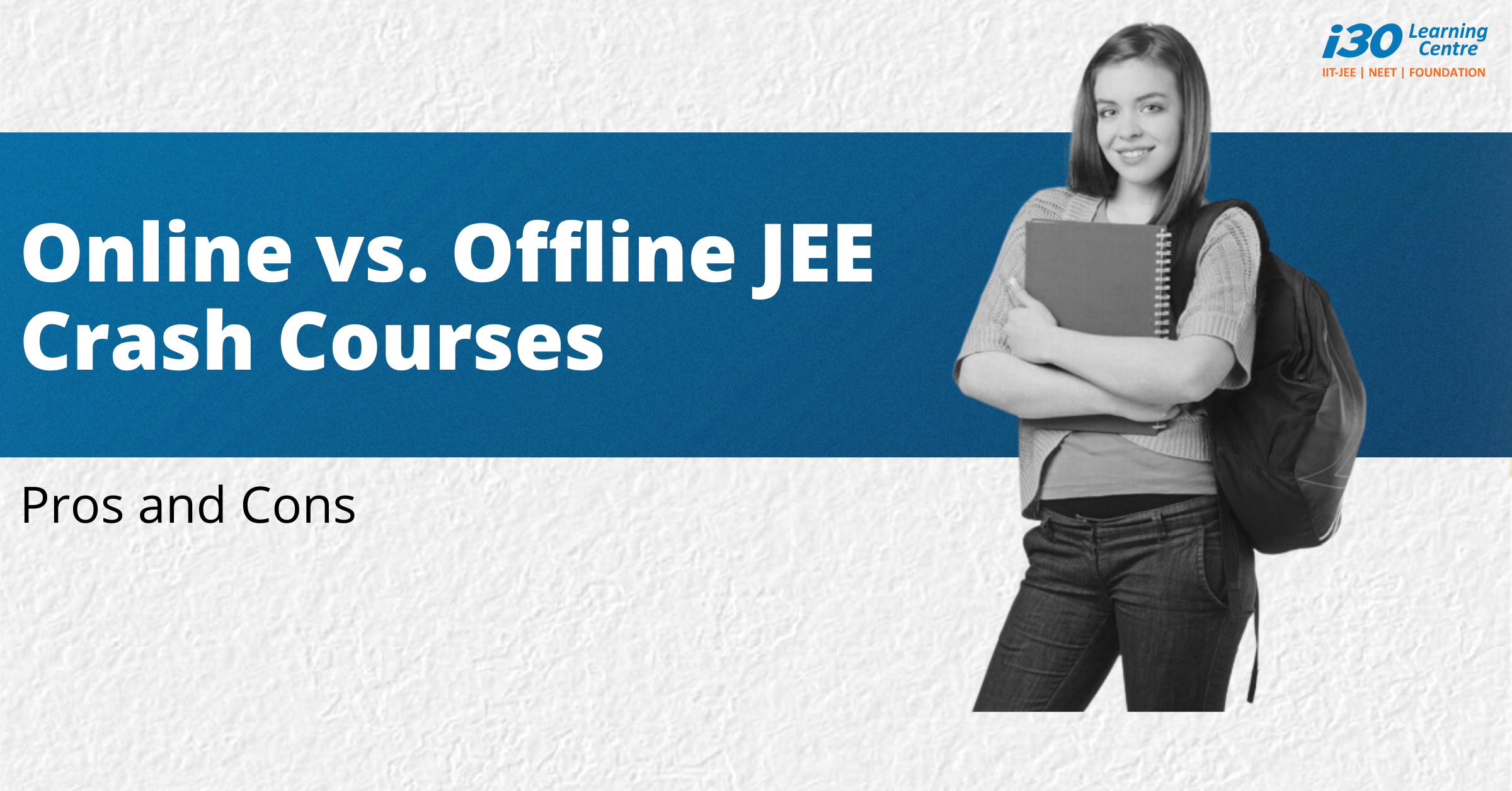JEE crash courses are intensive courses that are designed to help students prepare for the Joint Entrance Examination (JEE) in a short period of time. JEE is a highly competitive exam that is required for admission to top engineering colleges in India. Crash courses can be taken online or offline. In this blog we will be firther discussing about Online vs. Offline JEE Crash Courses.
Online JEE Crash Courses
Pros:
- Accessibility: Online crash courses offer unparalleled accessibility, allowing students from any corner of the country to access high-quality JEE preparation materials.
- Flexibility: These courses are adaptable to students’ schedules, enabling them to learn at their own pace and convenience.
- Diverse Resources: Online courses often provide a wealth of resources, including video lectures, practice tests, and study materials, ensuring a comprehensive learning experience.
- Cost-Effective: Online courses tend to be more cost-effective than their offline counterparts, making them a budget-friendly choice for many students.
- Interactive Learning: Many online platforms offer interactive features such as live webinars, doubt-clearing sessions, and peer forums, enhancing the learning experience.
Cons:
- Lack of In-Person Interaction: Online courses may lack the face-to-face interaction and personalized attention that some students find beneficial.
- Self-Motivation: Students need strong self-discipline and motivation to stick to online courses, as there is no physical presence of instructors to monitor their progress.
Offline JEE Crash Courses
Pros:
- Structured Learning Environment: Offline crash courses provide a structured environment with regular classes and interactions with instructors, ensuring students stay on track.
- Personalized Guidance: Instructors can provide immediate feedback, address doubts, and tailor the curriculum to meet individual students’ needs.
- Peer Support: Offline classes facilitate peer interaction, creating a competitive yet supportive environment that can boost motivation.
- Reduced Distractions: Being physically present in a classroom can help students stay focused on their studies, reducing the distractions that often come with online learning.
- Access to Physical Resources: Offline courses often offer physical libraries and study materials, giving students another valuable resource.
Cons:
- Limited Accessibility: Students may need to relocate or travel long distances to attend offline classes, which can be inconvenient and costly.
- Fixed Schedules: Offline courses have rigid schedules, which may not be suitable for students with other commitments or those who prefer a more flexible approach.
- Higher Costs: Offline JEE crash courses can be more expensive due to costs associated with classroom facilities, materials, and in-person instructors.
Conclusion
The choice between Online vs. Offline JEE Crash Courses ultimately depends on the individual needs and preferences of the student. Online courses offer flexibility, accessibility, and affordability, while offline courses provide structured learning, personal guidance, and a supportive classroom environment. To make an informed decision, students should consider their learning style, schedule, and budget.
For JEE Mains and JEE Advanced 2024, the key is to find the best crash course for your needs, whether it’s online or offline, to help you achieve your academic goals. A combination of both approaches, where students leverage online resources for self-study and complement it with offline coaching for personalized guidance, can also be a viable strategy. It’s crucial to assess your strengths and weaknesses and choose the right path that aligns with your aspirations for a successful JEE journey.



